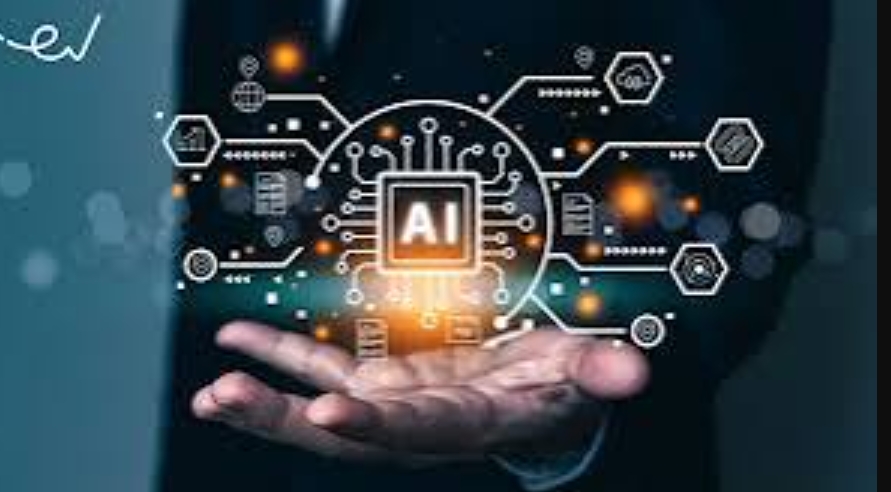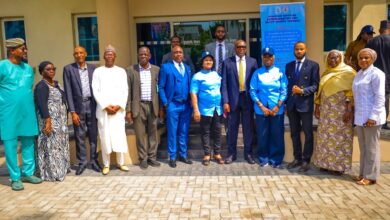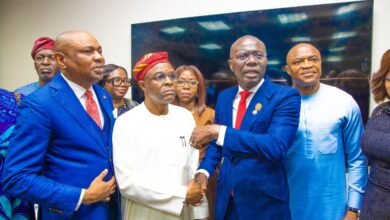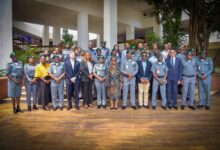
By Edu Abade
With current innovations and developments in the global digital age, African countries should be worried as they face the urgent task of closing the digital divide and ensuring that all citizens access the full benefits of technology.
With the global conversation around Artificial Intelligence (AI) intensifying, Nigeria, the leading economic power in West Africa, has taken a proactive approach to the challenge by proposing the establishment of a National AI Trust.
The proposed trust aims to catalyse and accelerate inclusive global connectivity and progress towards the Sustainable Development Goals (SDGs) by 2030. This move aligns with the growing recognition that AI has the potential to revolutionize all round socio-economic development.
Speaking during a panel discussion hosted by Foreign Policy, the global affairs magazine and website, on the sidelines of the recent 79th United General Assembly in September, Nigeria’s Minister of Communications, Innovation and Digital Economy, Dr. Bosun Tijani, stressed the crucial role of AI in bridging the digital divide between developed and developing countries to benefit all segments of society.
“AI development in the Global South presents a significant economic opportunity, but only if it is inclusive and equitable. AI will determine how people think, what they think, how they do their work, and how they interact. We believe that inclusion is not inclusion if it doesn’t add value to our world. It is not an option for certain parts of the world to be left behind,” he said.
Speaking further, he noted that African nations face challenges in terms of internet connectivity, infrastructure and digital literacy, adding that to ensure that AI benefits all, it is crucial for Africa to invest in digital infrastructure and provide training and education on AI technologies.
“By investing and establishing ethical frameworks for the development and leverage of AI’s full potential, Africa can create new opportunities for economic and social development while accelerating progress towards the SDGs.
“For example, AI can be used to improve access to healthcare, education and clean water in under-served communities. AI-powered diagnostic tools can also help to detect diseases early, while AI-driven educational platforms can provide personalized learning experiences for students.”
On her part, Executive Director of Mozilla Foundation, Nabiha Syed, said: “AI can contribute to sustainable agriculture by optimizing crop yields, reducing waste and improving food security. For instance in Kenya, AI is being used to predict crop yields and monitor soil health, enabling farmers to make more informed decisions about their land management practices.
“Inclusive AI development requires collaboration, data, and incentives. While publicly minded actors can provide these very necessary building blocks alongside relevant policy interventions, balancing trade, privacy, and competitive advantage in AI development is crucial.”
Syed further explained that Nigeria’s initiative to establish a national AI trust marked a significant step that may serve as a model for the continent and developing nations seeking to harness the power of technology for sustainable development.
“It mirrors similar efforts across Africa, particularly in Kenya and South Africa. Both countries have been front runners in leveraging digital technologies for inclusion and boosting economic growth and enhancing public service delivery,” he said.
In Kenya, the rise of mobile money platforms like M-Pesa has demonstrated how African innovations can precede global ones, reshaping financial systems worldwide. M-Pesa, launched in 2007, enabled millions of Kenyans to access banking services before similar platforms were developed in Western countries.
Similarly, Kenya with private sector collaborations has focused on AI to enhance public services, including in healthcare, education and agriculture. Collaborations and partnerships with technology companies such as Apollo Agriculture, Afyarekod, 4G Capital and Mawingu Networks highlight how AI can be a powerful tool for addressing local challenges and fostering inclusive growth in under-served regions.
South Africa, on the other hand, has taken steps to foster AI research and development through its academic institutions and collaborations with international technology companies. The country’s focus has been on creating policies that ensure AI systems are developed with ethical considerations, particularly around issues like data privacy and equitable access to digital infrastructure.
As with Nigeria, South Africa faces challenges related to digital literacy and the digital divide, with both governments making strides in addressing these barriers through public-private partnerships. As Nigeria takes bold steps to embrace AI and harness its potential for inclusive growth, it is paving the way for other African countries to follow suit.
“Although the Global South may have entered the AI race later than Western nations, the potential to shape AI for local contexts presents significant opportunities. Africa still has a chance to play a critical role in how AI technologies develop, especially by contributing local languages, cultures and unique contexts that global AI systems often overlook,” Tijani said.
By working together and prioritizing ethical AI development, African nations can accelerate their digital transformation and ensure that no one is left behind in the global digital economy.











